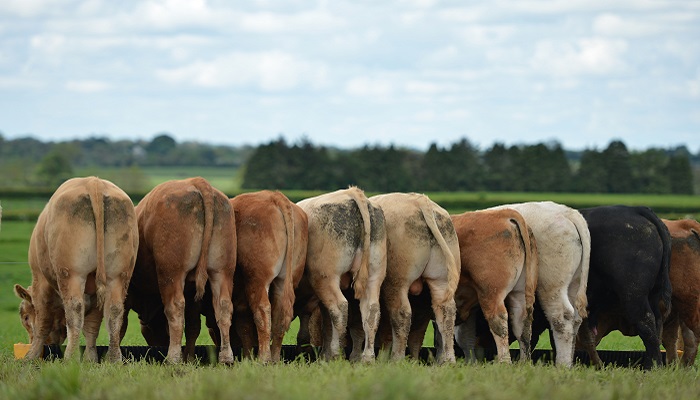31 October 2024
Research update: Feed efficiency in beef cattle

Kate Keogh, David Kenny and Mark McGee of Teagasc report on research that makes one animal more feed efficient than another.
Feed accounts for up to 75% of the variable cost in beef cattle production systems and consequently, provision of feed is a major determinant of profitability and economic sustainability. Identifying and breeding cattle that are feed efficient – those that require less input feed per unit of growth (kg of body weight gain) – provides a means to reduce feed costs and increase profitability, contributing to beef farming sustainability.
Good for farmers and the environment
Feed-efficient cattle will contribute to environmental sustainability, as these animals typically produce less methane.
Recent work conducted at Teagasc Grange focused on examining the underlying biology of what makes one animal more feed efficient than the next. To date, our analyses have identified biological processes (fat metabolism and immune system function) that are contributing to feed efficiency in beef cattle.
It has also highlighted a potential role for the NR1H3 gene in regulating feed efficiency. This gene warrants further evaluation for its use as a robust genetic marker for feed efficiency in beef cattle. Ongoing work in this project will further test and validate the results generated so far for their potential use as biomarkers for the genomic selection of feed-efficient beef cattle.
The above article first appeared in the October Teagasc Beef Advisory Newsletter. Access the full publication here.
Diary date – Teagasc National Beef Conference
The Teagasc National Beef Conference 2024 takes place on Tuesday, 19 November at 5pm in the Landmark Hotel, Carrick-on-Shannon, Co. Leitrim, N41 N9W4.
The theme of the conference is ‘Sustainable Beef Farming: Pathways to a greener future’
See the National Beef Conference Programme here.
